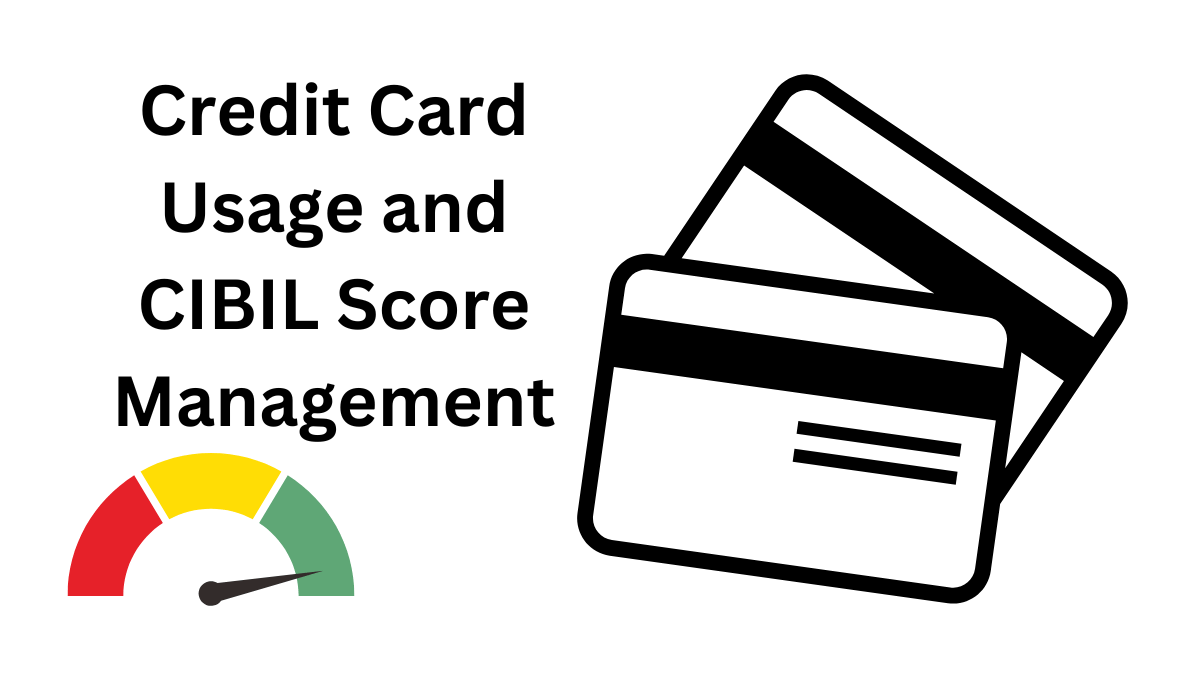In today’s fast-paced world, credit cards have become an integral part of daily life. From online shopping to travel expenses, the use of credit cards has spread beyond cities and is now common even in rural areas. While many enjoy the benefits of credit cards, few are aware of how to effectively manage their credit card usage and ensure a good CIBIL score. A strong CIBIL score is essential for obtaining loans, and managing your credit card responsibly can help you maintain or improve this score.
Contents
- 1 Why is Credit Card Usage Increasing?
- 2 What is a Good CIBIL Score and How Does it Relate to Credit Cards?
- 3 Managing Your Credit Card Utilization: The Key to a Good CIBIL Score
- 4 How to Calculate Your Credit Utilization Ratio (CUR)?
- 5 Tips for Managing Credit Card Usage
- 6 The Consequences of Poor Credit Card Management
- 7 Conclusion
Why is Credit Card Usage Increasing?
The increased popularity of credit cards can be attributed to their convenience and rewards programs. Many credit card companies offer reward points for every purchase, which can later be redeemed for cashback or shopping vouchers. This makes using a credit card for everyday purchases an attractive option for many consumers. However, some users often find themselves crossing their credit limits, which can negatively affect their CIBIL score.
What is a Good CIBIL Score and How Does it Relate to Credit Cards?
Your CIBIL score is a crucial factor in determining your creditworthiness. It is calculated based on your credit history, including how well you manage your credit card payments and loans. A CIBIL score of 700 or above is generally considered good, while a lower score could make it difficult to obtain loans or credit in the future.
Each credit card has a credit limit assigned to you based on your CIBIL score. If you exceed your credit limit or fail to pay on time, your score could be negatively impacted. This can lead to higher interest rates or loan rejections in the future.
Managing Your Credit Card Utilization: The Key to a Good CIBIL Score
One of the most important aspects of maintaining a good CIBIL score is managing your credit card utilization. Credit utilization refers to the percentage of your total credit limit that you use. To maintain a healthy credit score, it is advisable to keep your credit utilization ratio (CUR) between 30% and 40%. If your utilization exceeds 50%, it could be seen as a negative factor by lenders.
How to Calculate Your Credit Utilization Ratio (CUR)?
To calculate your credit utilization ratio, divide the total amount of debt on your credit card by your credit limit. Then, multiply the result by 100 to get your CUR percentage.
Formula:
(Credit Card Debt ÷ Credit Limit) × 100 = CUR Percentage
For example, if your credit limit is ₹50,000 and your outstanding balance is ₹20,000, your CUR would be 40% (20,000 ÷ 50,000 × 100 = 40%).
Tips for Managing Credit Card Usage
- Keep Your Credit Utilization Below 50%
Ideally, you should use only 30% to 40% of your credit limit. If your credit limit is ₹50,000, try to keep the outstanding balance below ₹25,000. This will help you maintain a good CIBIL score. - Pay Your Credit Card Bill on Time
Never carry forward an outstanding balance on your credit card. You typically have 50 days to pay your bill, and it is crucial to make payments before the due date to avoid interest charges and late fees. Timely payments help build a positive credit history, which is essential for a good CIBIL score. - Make Partial Payments If You Can’t Pay the Full Bill
If you’re unable to pay the entire balance, always make a partial payment to avoid penalties. Even a small payment will help reduce your outstanding balance and prevent late payment fees. - Avoid Sharing Your Credit Card Information
With the rise in digital fraud, it’s essential to keep your credit card details—such as your CVV, PIN, and expiration date—private. Sharing this information can lead to unauthorized transactions, which will negatively impact your CIBIL score.
The Consequences of Poor Credit Card Management
Improper management of credit card usage can lead to significant consequences for your CIBIL score. When you consistently exceed your credit limit, miss payments, or fail to make at least the minimum payments, your credit score will drop. This, in turn, could lead to higher interest rates on future loans and make it difficult to secure credit when you need it most.
Conclusion
Using a credit card wisely is essential for maintaining a healthy CIBIL score. By keeping your credit utilization low, paying bills on time, and avoiding overspending, you can ensure that your credit card usage positively impacts your financial health. Remember, a good CIBIL score opens doors to better financial opportunities, including easier access to loans and favorable interest rates.
